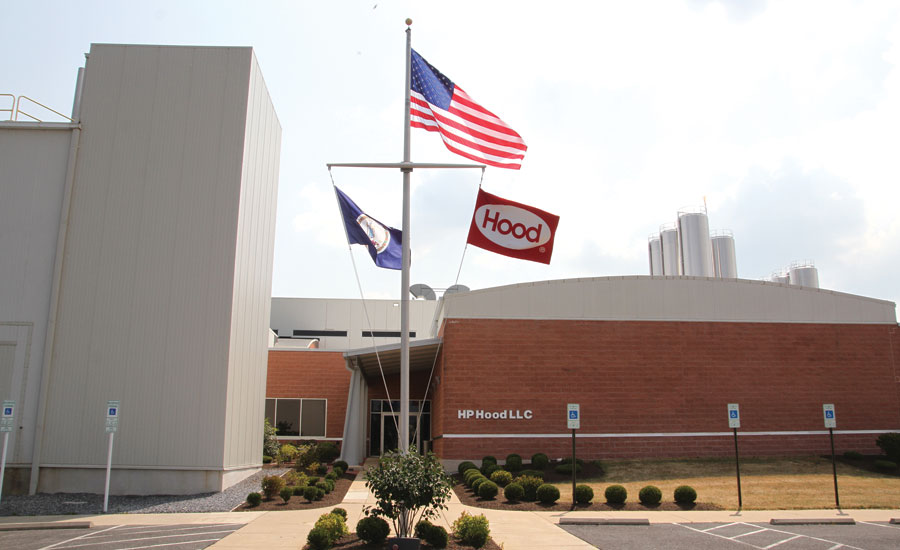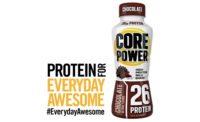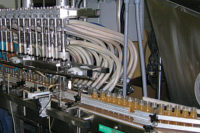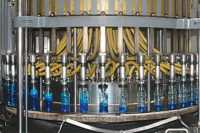HP Hood investments support contract manufacturing capabilities
Protein drinks, dairy alternatives growth contribute to investments

With Rockville, Md.-based Packaged Facts estimating the dairy and dairy alternative beverage category will grow from a $23.8 billion industry in 2014 to a $31.5 billion industry by 2019 in its April report titled “Dairy and Dairy Alternative Beverage Trends in the U.S.,” more beverage-makers will be in search of contract manufacturers to support their beverage-making needs.
Jeffrey Andrews, senior director of contract manufacturing for Lynnfield, Mass.-based HP Hood, notes that the health of these markets has resulted in some customers wanting to make dairy-alternative beverages utilizing other protein sources such as nuts and plants. To help meet these needs in the dairy alternatives and dairy markets, HP Hood continues to invest in its facilities. In the past three years alone, it has invested $300 million into new equipment capabilities and systems. Additionally, the company increased its square footage, most recently at its Winchester, Va., plant.
Sitting on 78 acres, the Winchester plant recently marked its 15th anniversary by welcoming customers, farmers, congressional representatives and many more to a celebration event. Andrews noted that it was nice to see so many of its supporters who have been allies not only in the creation of the plant, but also its growth in the past decade. “This plant has been under continuous expansion ever since it opened,” he says.
The plant now is 465,032 square feet and in January opened a new 260,000-square-foot warehouse on the site. “We’re constantly adding new capabilities, upgrading lines and making other investments to support our customer’s growth,” Andrews says.
Winchester’s operations have 526 employees working 24/7 shift schedules to help support its 13 production lines, which feature a production capacity of approximately 150 million gallons a year.
One of the latest additions to the plant is an additional high-speed aseptic bottling line. “This is an extremely sophisticated production line that went into production within the last year,” Andrews explains.
This is HP Hood’s second high-speed aseptic filling line at the Winchester plant. The company also has a third in California making HP Hood the largest aseptic bottling contract manufacturer in the United States, Andrews notes.
The growth of protein drinks — dairy and non-dairy based — as well as meal replacement beverages are among the influences for adding the second line in Winchester. “These are exciting consumer product segments and these kinds of drinks need to be made on aseptic filling lines,” Andrews says. “Hood is participating in the growth of those sectors in our contract manufacturing business.”
Andrews explains that aseptic filling is an alternative to retort, which uses heat to kill bacteria but also can degrade the food or beverage in the package. Aseptic systems expose the product to significantly less heat than retort thereby reducing the potential damage to product, he adds. Products like protein drinks have a pH range that requires sophisticated “low acid” aseptic filling and packaging, Andrews explains.
The addition of the second aseptic line at Winchester was one of the reasons for adding the warehouse.
“A primary purpose for the warehouse expansion was to support the new aseptic line. These lines put out an enormous amount of product,” Andrews says. “These products also have a long shelf life, so you need the square footage for storage.”
Like its other facilities, the new warehouse at Winchester features numerous automation technologies to keep operations running efficiently. “We use a lot of data management and collaboration systems so our employees are efficient on the floor, decisions get made by the right people and coordination with the logistics vendors can all be done electronically,” Andrews says. “All of that keeps things moving efficiently and reduces the number of product moves within the warehouse.”
But just as important as running an efficient operation is maintaining quality throughout the process.
“If you’re in the dairy industry, by definition, you need to have very, very high quality standards because dairy is a very challenging product to manufacture safely and with high quality,” Andrews says. “Hood, with its legacy in dairy, has become an extraordinary manufacturing company in terms of quality and efficiency. It is the culture of Hood’s leadership team to continually reinvest in growth. In contract manufacturing this means staying ahead of the curve on new technology and being willing to invest in growth alongside our brand partners.”
Although HP Hood remains committed to its family of brands, the company has seen its contract manufacturing business grow dramatically during the past decade. Hood’s contract manufacturing business alone is now larger than half of the companies traded on NASDAQ, Andrews explains. With plants from New England to California, HP Hood is manufacturing products nationwide at a large scale, and Andrews anticipates that will continue.
“Dairy is a highly competitive market segment with extraordinary quality requirements. As a result, our success in dairy is what built this wonderful platform for success in contract manufacturing. The food industry is a big place, so I expect to see us continue to grow” he says. “A lot of that volume will be in Winchester, but much of it will end up in our other 11 plants as well and maybe in other plants that we’ll create from scratch as we did with Winchester. The company is having a successful year this year, it’s really been a successful decade. We see no reason that it can’t continue.”
Looking for a reprint of this article?
From high-res PDFs to custom plaques, order your copy today!






